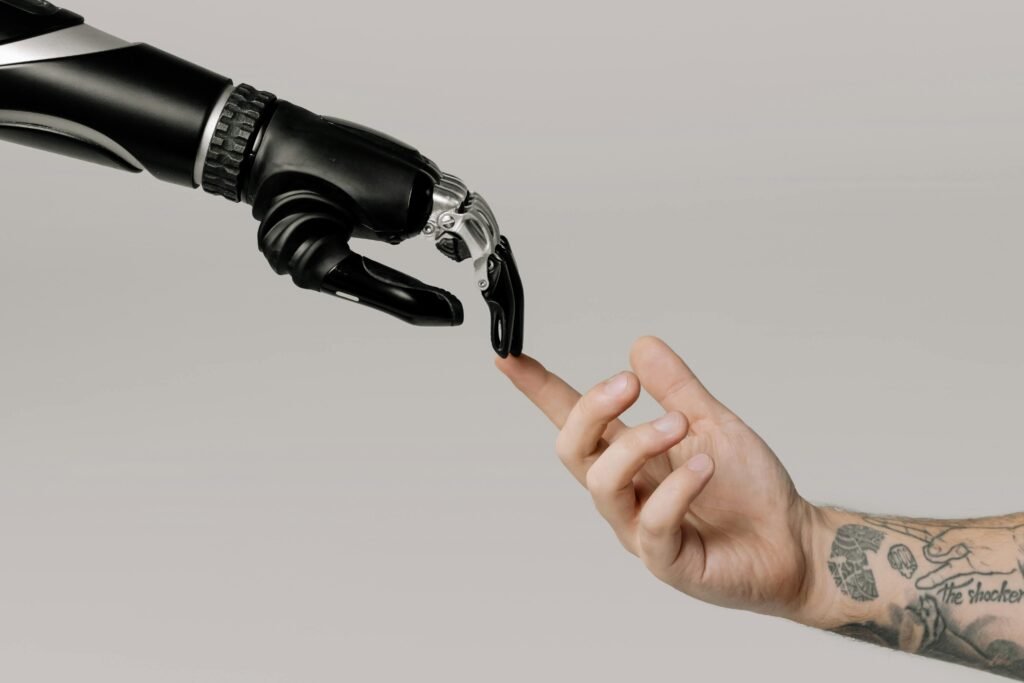Artificial Intelligence (AI) has made extraordinary leaps in recent years, revolutionizing industries and creating new possibilities in virtually every sector, from healthcare to finance and entertainment. The term “best” in AI can refer to various aspects—whether it’s a general-purpose conversational AI, an AI built for specific tasks, or one that leads in computational power. Below, we explore some of the best AI systems and technologies available today, highlighting their capabilities and unique features that make them stand out.
1. OpenAI’s GPT (Generative Pretrained Transformer)
Overview: OpenAI’s GPT series, especially GPT-4, has set new standards for AI language models. Known for its remarkable ability to generate human-like text, GPT is a powerful tool that excels in a range of tasks, including writing essays, answering questions, generating creative content, coding, and more.
Strengths:
- Natural Language Understanding: GPT-4 is capable of understanding context and nuance in conversation, making it one of the best AI for generating text that mimics human speech.
- Versatility: It can perform a variety of tasks, from simple questions to complex problem-solving, and can be integrated into applications such as chatbots, content creation tools, customer service, and programming assistants.
- Training Data: GPT is trained on an extensive dataset, including books, websites, and other forms of written content, which allows it to generate highly coherent and relevant information.
Use Cases:
- Content creation (articles, blogs, fiction, etc.)
- Customer support automation
- Coding assistance and debugging
- Language translation and summarization
2. Google DeepMind (AlphaGo & Gemini)
Overview: Google DeepMind has consistently been at the forefront of AI research, producing some of the most advanced AI systems in the world. AlphaGo, which defeated world champion Go players, was one of the earliest milestones in AI’s ability to learn and strategize. DeepMind’s latest model, Gemini, continues to push the boundaries with its AI-driven solutions.
Strengths:
- Superhuman Performance: AlphaGo’s victory over a top Go player demonstrated AI’s potential to excel in strategic games by learning from vast amounts of data and improving itself over time.
- Reinforcement Learning: DeepMind uses reinforcement learning to create models that can not only learn from data but also make decisions based on rewards and penalties, a technique that is crucial for advanced robotics and autonomous systems.
- Real-World Applications: Gemini’s capabilities extend beyond gaming into areas like healthcare, with AI models helping predict medical conditions and optimize treatments.
Use Cases:
- Healthcare diagnostics
- Strategic planning and game AI
- Autonomous systems and robotics
- Natural language processing (NLP)
3. IBM Watson
Overview: IBM Watson has been one of the most well-known AI systems, particularly in business and enterprise applications. Its cognitive computing platform enables businesses to leverage AI for data analysis, decision-making, and process automation. Watson has been particularly effective in industries like healthcare, finance, and customer service.
Strengths:
- Business-Oriented AI: Watson is designed to handle complex business operations, using machine learning and NLP to extract insights from large datasets and support decision-making.
- Natural Language Processing: Watson has powerful NLP capabilities, allowing it to understand, analyze, and respond to human language with precision.
- Customizability: Watson can be tailored to meet the specific needs of various industries, whether it’s healthcare diagnostics, financial analytics, or customer interaction.
Use Cases:
- Healthcare: Assisting in diagnosing diseases and creating personalized treatment plans.
- Finance: Analyzing market trends and making investment recommendations.
- Customer Service: Automating customer support and providing insights from customer interactions.
4. Tesla’s AI and Self-Driving Technology
Overview: Tesla has been a trailblazer in autonomous vehicle technology, leveraging its AI-driven self-driving system to develop one of the most advanced autonomous driving platforms. Tesla’s approach to AI in vehicles goes beyond just navigation; it includes safety systems, predictive maintenance, and real-time decision-making.
Strengths:

- Autonomous Driving: Tesla’s AI uses data from cameras, radar, and ultrasonic sensors to navigate roads, avoid obstacles, and make real-time driving decisions.
- Continuous Learning: Tesla’s system constantly improves through over-the-air updates, where data from millions of miles driven by Tesla cars are used to refine the AI’s capabilities.
- Safety and Performance: Tesla’s AI-powered driver-assistance features, such as Autopilot and Full Self-Driving (FSD), significantly enhance vehicle safety and driving convenience.
Use Cases:
- Self-driving vehicles
- Predictive maintenance and diagnostics
- Traffic prediction and route optimization
- Advanced driver-assistance systems (ADAS)
5. Meta’s AI (formerly Facebook AI)
Overview: Meta (Facebook) has invested heavily in AI to improve the user experience across its social media platforms. With innovations in computer vision, natural language processing, and augmented reality (AR), Meta’s AI is at the heart of many of the features we use daily.
Strengths:
- Computer Vision: Meta’s AI can analyze images and videos to identify objects, people, and even emotions, which is essential for improving features like automatic tagging, image search, and content moderation.
- Augmented Reality: Meta uses AI to power AR features, such as those in Instagram Filters and Facebook’s AR-based advertising, which allow users to interact with virtual objects in the real world.
- Personalization: Meta uses AI to analyze user behavior and tailor feeds, advertisements, and recommendations to each individual, optimizing engagement and user experience.
Use Cases:
- Social media features (photo recognition, content tagging)
- Augmented reality and virtual reality
- Personalized ads and recommendations
- Content moderation and safety
6. Amazon Alexa and AWS AI
Overview: Amazon has developed one of the most popular AI assistants, Alexa, which powers voice-activated smart devices. In addition to Alexa, Amazon’s AWS AI offers a suite of machine learning and AI tools for businesses, developers, and organizations to integrate into their services.
Strengths:
- Smart Home Integration: Alexa controls a wide range of smart home devices, from lights to thermostats and security systems, using voice commands.
- Natural Language Processing: Alexa’s voice recognition capabilities allow it to understand and respond to a wide variety of commands, from casual requests to complex instructions.
- Cloud-Based AI Tools: AWS provides AI tools like Rekognition (image recognition), Lex (chatbots), and SageMaker (machine learning model building), enabling developers to create their own AI solutions with ease.
Use Cases:
- Voice assistants and smart home control
- Personalized recommendations and shopping
- Business solutions (chatbots, analytics, and automation)
- Image and video recognition

Conclusion: The Best AI Systems So Far
Each AI system mentioned above represents the cutting edge of its category, from general-purpose conversational AI like OpenAI’s GPT to highly specialized systems like Tesla’s self-driving technology and IBM Watson’s business-oriented solutions.
- For conversational AI and creativity, GPT takes the lead, with its deep learning algorithms enabling it to understand and generate human-like responses.
- For healthcare, business, and enterprise solutions, IBM Watson provides powerful analytics and decision-making capabilities.
- For autonomous driving, Tesla’s AI is revolutionizing the future of transportation.
- For social media and augmented reality, Meta’s AI leads the charge with its computer vision and AR-powered experiences.
As AI continues to advance, we can expect even more powerful and nuanced systems that integrate into every aspect of our lives. Whether you’re using AI to streamline business operations, enjoy immersive experiences, or drive your car, the future of AI is incredibly bright and full of possibilities.

